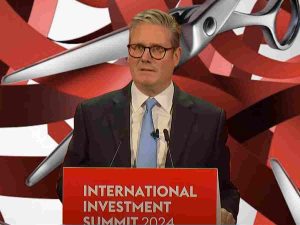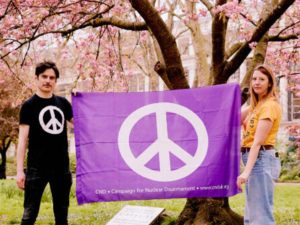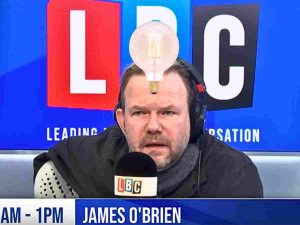Venezuela is back in the limelight in the West after recent presidential elections. And in many ways, it’s a similar story to before. Political and media supporters of US imperialism portray the country as a dictatorship, providing little nuance, context, or genuine concern for ordinary Venezuelan citizens. And while Venezuela has lots of oil and the US wants lots of oil, it is not entirely a black and white situation.
The Canary spoke to Ricardo Vaz from Venezuelanalysis – the leading independent, non-profit, non-governmental media outlet focusing on Venezuelan politics – to share a perspective that’s unlikely to appear in the corporate media.
The “devastating consequences” of US economic warfare against Venezuela
The election of the charismatic and outspoken Hugo Chávez in 1998 was massive. It shattered a dominant neoliberal order in Venezuela. And coming in an oil-rich nation in particular, the shockwaves felt in the hallways of imperial rule were all the more concerning for the powers that be.
The Western hostility against the country only intensified from that moment onwards, with US sanctions in recent years being particularly disastrous, impacting ordinary people the most. Millions of people have left the country amid this economic warfare. And US political figures have been open about the importance of this siege in putting pressure on Chávez’s successor Nicolás Maduro.
As Vaz told the Canary:
I think the changes since the 2018 presidential election begin and end with one thing: economic sanctions. These unilateral measures, mostly from the US Treasury Department and targeting the Venezuelan oil industry above all, have had devastating consequences for the Venezuelan people, with estimated tens of thousands of yearly deaths as a result.
Therefore, all the changes have to be understood with this background. One clearly visible aspect is migration, with sanctions accelerating the exodus. On the domestic front, the Maduro government has taken a clearly pragmatic approach to the economy in search for answers to jumpstart it again.
This has meant an increase of liberal policies and improved conditions offered to private actors, both national and foreign, such as tax breaks, fixed-time concessions of state assets and deflated wages.
Speaking specifically about the migration situation, he said:
It’s very hard to get a clear picture of migration because of the lack of reliable data, which in turn is driven by competing interests.
The government offers a clear underestimate of the total figure, whereas NGOs are interested in inflating numbers since their funding is proportional to the number of migrants they can offer services to. One example is the overcounting of people who cross the border for short periods, whether it is to work or to buy things to then re-sell on this side.
My overall impression is of a reduced flow of people leaving the country because of the more stable economic outlook, but I cannot offer hard data to back it up.
An “improved economic situation”: why people still vote for Maduro
Polls favouring the West suggested the right could win in the recent election, but polls more sympathetic to the political process in Venezuela had very similar figures to the actually stated results, in which Maduro won.
The president of one polling agency in Venezuela said Maduro was likely to win for reasons including: recognition and perseverance; continuing popular support for a politics focusing on economic and social inclusion; economic improvements; action against corruption; a divided, controversial, uninspiring opposition disconnected from ordinary people.
Vaz echoed some of this, emphasising that:
Maduro’s campaign pitch was very much centered on the improved economic situation, with modest growth alongside heavily reduced inflation. We are talking about the lowest figures in a decade. He offers the continuity of the Bolivarian Process which, though containing strong contradictions and challenges, continues to have a true revolutionary potential through grassroots organizations.
Here the main expressions are communes, which in Chávez’s vision are the building blocks for the construction of socialism. Though these popular power expressions do not have the protagonism they had years ago, they continue to plow forward in the construction of new social relations.
Venezuela elections: monitors and the fake news
Fake news hostile to Maduro has been everywhere since the election, with the apparent support of bots and even elite figures like Elon Musk. There also appear to have been attacks on non-corporate media sympathetic to Venezuela. It’s very much an online struggle to manufacture consent for yet more US-led hostility towards the country, which is almost certain to ramp up in coming months.
The Carter Center, which previously praised Venezuela’s elections, has criticised this one. But it has also highlighted that “Venezuelan citizens turned out peacefully and in large numbers to express their will on election day”, and that “voting appeared to take place in a generally civil manner”.
The National Lawyers Guild International Committee, which has a long record of fighting against fascism and supporting people unfairly accused of ‘subversion’ during the Cold War, also went to monitor the election. And it claimed to witness “no instances of fraud or serious irregularities, and found overall voter satisfaction with the electoral process”.
Unfortunately, however, they noted that “Opposition violence ensued at multiple polling stations across the country before the closure of the polls, functioning to effectively block the final count”. One target of the right-wing riots was reportedly a hospital.
The corporate media as an imperialist mouthpiece
Vaz reserved strong words to describe the behaviour of the international corporate media in reaction to the election, saying:
When it comes to Venezuela, the corporate media essentially works in Goebbelian fashion, repeating false or unproven claims ad nauseam until they become the background. For example, the idea that the 2018 presidential election was “a sham” just because it was not recognized by the United States and its allies.
But the main aspect that is either ignored or whitewashed are sanctions. These are measures that affect virtually all of Venezuelan society, with terrible consequences especially for the poor and working class.
The media establishment will either not mention them, or misrepresent them as only targeting Maduro and allies, as well as endorse them as somehow representing “punishment” for an alleged lack of democracy in the country.
As I wrote about the previous presidential election in Venezuela, there is indeed a significant “democratic deficit”, as there is in many countries around the world, including in the imperial family of the US, the UK, and Israel.
But if you want to know who is, overall, on the right side of history and who isn’t, you need to ask some important questions, like who has been standing firm against the ongoing genocide in Gaza, and who hasn’t? Maduro, for instance, has been a strong supporter of Palestine. And the Venezuelan opposition has links with Israel.
Because the war criminals in charge of Israel are allies of the West, however, and Venezuela’s government isn’t, guess which one the establishment media will be focusing on more passionately in coming days and weeks.
Featured image via the Canary




